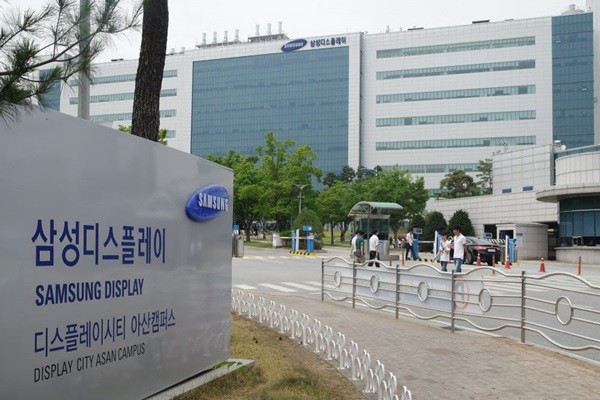Samsung Display is planning to increase its production capacity of foldable displays up to 1 million units per month by end of this year. This means that it is going to quadruple its current production capacity and increase its supply according to flourishing of the global foldable smartphone market. Because there is a chance that it will select additional key materials and components makers according to an extension of its production facilities, relevant industries are paying careful attention to Samsung Display’s next moves.
According to the industry, Samsung Display is planning to increase its production capacity of its foldable displays, which is currently at about 260,000 units per month, to about 600,000 units per month by end of May. It is going to carry out build additional facilities with its module plants in Vietnam at the center and increase its production capacity. It is heard that Samsung Display will continue to build additional facilities in the second half of this year as well.
“We have heard that Samsung Display is planning to increase its production capacity up to 1 million units per month by end of this year through ramp-up and construction of additional facilities.” said a representative for the industry.
According to an official announcement made by a display equipment maker called Philoptics, it plans to supply $13.8 million (16.27 billion KRW) and $5.84 million (6.9 billion KRW) worth of equipment by the end of May and the end of July respectively. The schedules for these supplies of equipment are almost in an agreement with Samsung Display’s schedule for an extension of facilities. Philoptics is the only company that current supplies cutting equipment that is a key equipment for manufacturing of foldable displays to Samsung Display.
Reason why Samsung Display is planning to increase its production capacity of foldable displays is due to the foldable smartphone business of its parent company and a key customer Samsung Electronics.
Samsung Electronics is planning to launch another new foldable smartphone in the second half of this year after launching Galaxy Flip Z in this first half. As the number of Samsung Electronics’ foldable smartphones has increased from one in 2019 to two in 2020, there needs to be greater production capacity of foldable displays. Reason why Samsung Display is expanding its module lines and not OLED panel production lines is because its production capacity of foldable displays is close to its production capacity of modules.

Manufacturing process of a foldable OLED panel is almost similar to that of a normal flexible OLED. However, they differ when it comes to the module manufacturing step as components and materials are attached according to a foldable display. It is heard that Samsung Display is focusing its investment in its module lines as it can afford to do so.
Samsung Display is speeding up the process of building additional facilities as it supplies foldable displays to other smartphone manufacturers in addition to Samsung Electronics. As foldable smartphone has emerged as a next source of profit for smartphone manufacturers while the global smartphone market is going through a stagnation, Samsung Display is building additional facilities in order to grab the upper hand of the global foldable smartphone market.
“We have heard that Samsung Display is currently developing foldable displays after receiving requests from few Chinese smartphone manufacturers.” said a representative for another company.
Samsung Display’s investment is expected to have a huge impact on South Korea’s back-end industries as additional facilities will require more materials and components resulting in opportunities for relevant industries.
The most important component is “cover window”. Cover window is a part that protects a display from an outer impact. While tempered glass was used as a cover window for previous smartphones, foldable smartphones require new materials such as transparent PI (polyimide) and UTG (Ultra-Thin Glass) due to their characteristics.
Samsung Electronics used Sumitomo’s transparent PI for its first foldable smartphone Galaxy Fold. For its next foldable smartphone Galaxy Z Flip, it used UTG processed by Dowoo Insys on Schott’s glass. Because transparent PI and UTG are both manufactured and supplied by single company, Samsung Display needed to expand its supply network.
“Relevant companies have been preparing on transparent PI or glass manufacturing business after expecting increased demands from Samsung Display.” said a representative for the industry. “There will be mingled feelings between companies as suppliers are expected to be decided for the model that Samsung Electronics will release in the second half of this year.”
Staff Reporter Yun, Geonil | benyun@etnews.com